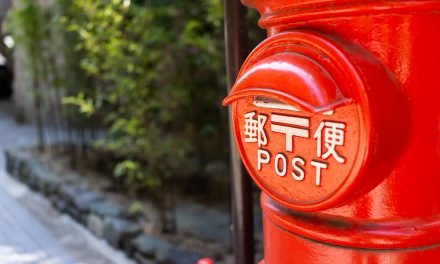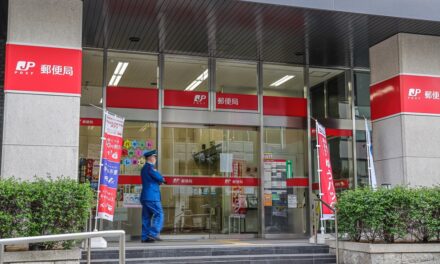
First major reform in Modern Postal System creates Japan Post
The governmental Postal Services Agency became Japan Post, a public corporation, on Tuesday, marking the first major reform of Japan's modern postal system.
Prime Minister Junichiro Koizumi told reporters Tuesday that launching Japan Post is the same as "having made the first step in privatizing the postal services," a pet project he views as a key pillar of his cabinet's structural reform plans.
But it is still an open question whether the new public corporation will be turned into a private firm in the future as Koizumi hopes. Some lawmakers within the premier's Liberal Democratic Party (LDP) are staunchly against doing so.
Capitalized at 1 trillion yen, Japan Post has taken over the three services of mail delivery, postal savings and "kampo" life insurance from the agency. The government had run Japan's modern postal system since its establishment 132 years ago.
Taking the helm of the mammoth organization, which has over 280,000 employees at the head office and some 24,700 post offices across the nation, is Masaharu Ikuta, former chairman of shipping firm Mitsui O.S.K.Lines Ltd.
Ikuta resigned as Mitsui O.S.K.Lines chairman Monday to become the first Japan Post president.
In an address during Japan Post's inauguration ceremony, Ikuta said he intends to achieve a cumulative profit of about 4 trillion yen in the first two years of operations, or half the time the entity's midterm management plan requires.
Ikuta, known as an ardent reformer, is aided by two senior executive vice presidents, or deputy chiefs. One of them is Toshihiro Takahashi, a former managing director of Toyota Motor Corp.
Takahashi is in charge of Japan Post's mail delivery operations and one of his missions is to apply Toyota-style efficiency to them.
The other deputy Japan Post chief is Hiroaki Dan, who was director general of the Postal Services Agency until Monday. He supervises postal savings and life insurance services.
Japan's post offices also function as banks and life insurance firms, with the two services handling funds totaling about 360 trillion yen.
Critics of the services say the government has wasted a sizable portion of these funds by pouring money into poorly performing government-affiliated corporations such as Japan Highway Public Corp.
Last September, Koizumi's advisory panel on ways to privatize postal services handed him a final report, proposing three privatization options.
The first plan is to turn Japan Post into a private firm without changing its mail delivery and financial services. The second involves Japan Post becoming a private firm but having its financial services abolished.
The third plan calls for converting the public corporation into a special company wholly owned by the government.
LDP lawmakers with vested interests in the postal sector have opposed privatization. They say it will lead to the closure of post offices in remote areas and inconvenience the public.
Japan Post is set to expand the scope of its predecessor's tie-ups with the private sector, with business partners ranging from florists to convenience stores opening outlets inside some post offices later this year.
Concurrently with the launch of Japan Post, the government lifted its ban on private firms entering the mail delivery market.
But due to strict conditions on would-be entrants, such as the requirement to set up about 100,000 mailboxes throughout the country, no companies have expressed readiness to offer nationwide mail delivery services.
Five motorbike messenger companies filed applications with the government Tuesday to enter the mail delivery market in only Tokyo and Nagoya.












